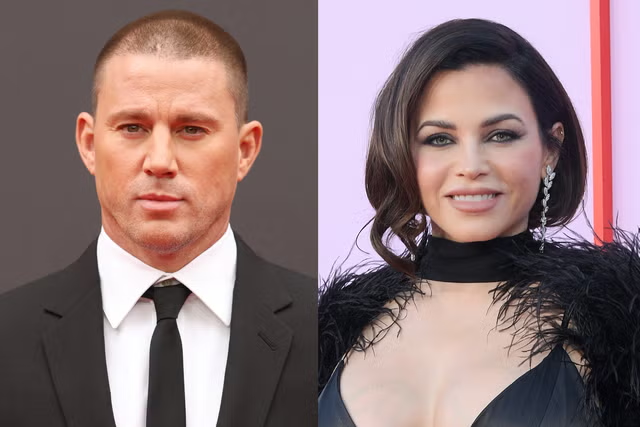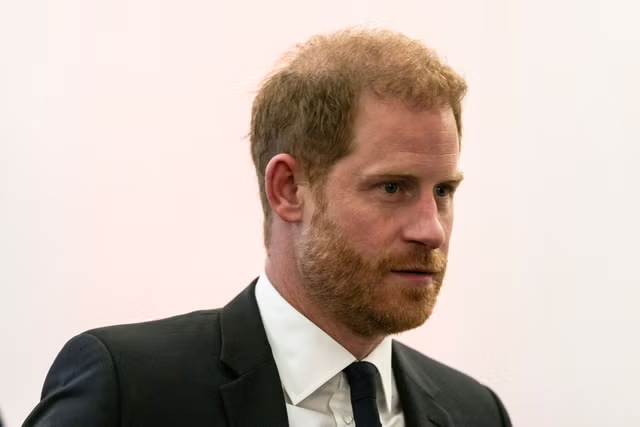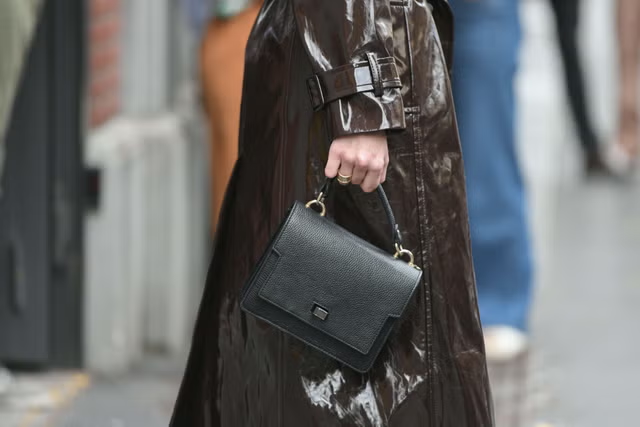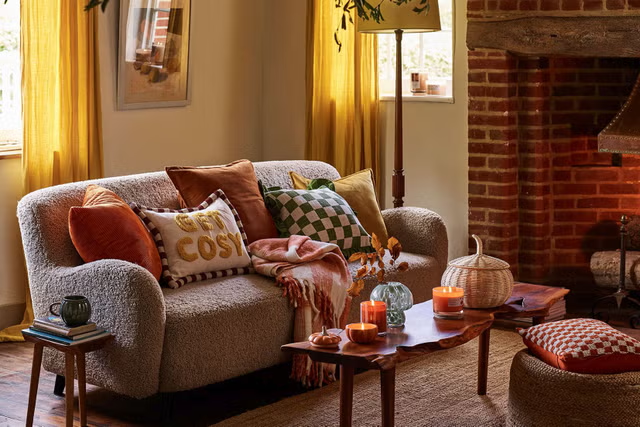Your support helps us to tell the story
Support NowMy recent work focusing on Latino voters in Arizona has shown me how crucial independent journalism is in giving voice to underrepresented communities.
Your support is what allows us to tell these stories, bringing attention to the issues that are often overlooked. Without your contributions, these voices might not be heard.
Every dollar you give helps us continue to shine a light on these critical issues in the run up to the election and beyond

Eric Garcia
Washington Bureau Chief
Coronation Street star Sue Cleaver has no intention of “shuffling off” now she’s in her 60s. In fact, she’s heading into this new life-chapter filled with goals, drive and newfound self-assuredness.
“I’m of that age – and I’m surrounded by a lot of women, we’re all going through the same thing – but I don’t want to just shuffle off,” Cleaver says as we chat over Zoom.
“I feel like I’ve still got a lot to give, and I want adventures. I’m not going to let fear hold me back, and I’m not going to let society hold me back either – absolutely not. I want to forge my own path, and I encourage all women to do the same.
“Are there areas of my life that could be improved? Of course. Is every day a great day? Of course not. But I know where I’m going, and I’m alright. I quite like myself now. I don’t feel I need to hide certain parts of me.”
This is all new territory for Cleaver, who has played no-nonsense Eileen Grimshaw on ITV’s long-running soap Corrie since 2000.
Earlier this year, she took a break from the cobbles to star in a musical touring production of Sister Act – it was the first time she’d been on stage in 25 years and, she admits, she “s*** myself” with nerves.
“But it was fabulous,” Cleaver beams. “I’m scared – so what? I could have wound myself up and talked myself out of it in the past, going, ‘Oh no – what if, what if, what if?’
“But I don’t listen to those voices any more. If I want to do it, if it feels like a good opportunity, I go: ‘Yeah OK, let’s give it a go – what’s the worst that can happen?”
While it’s easy to think celebrities who appear in front of an audience of millions week after week must be brimming with confidence, for most of her life, Cleaver grappled with internal self-doubt, often feeling ‘other’ and that she didn’t really ‘belong’ – and it’s only in the last two years that this has changed.
Cleaver, who has a grown-up son, Elliot Quinn, with her ex-husband James Quinn, peels back the layers on how she reached this point in her new book, A Work In Progress, which she describes as part memoir, part “manifesto for women”.
It starts at the very beginning, when Cleaver was adopted as a newborn from a north London hospital. She recalls a ‘wonderful childhood’ with loving parents – the family moved locations a few times, including a spell in Scotland before settling in Manchester.
But as Cleaver writes in the book: ‘Despite the fact that I was never made to feel lesser in any way by my loving family, not knowing who I was or where I came from added another layer of uncertainty about myself, which has underlined my life for as long as I can remember, until relatively recently.’
It was her stint on I’m A Celebrity… Get Me Out Of Here! in 2022 that triggered her to really start letting go of the negative self-beliefs she’d been carrying. Although Cleaver had already started having therapy in her mid-40s, sharing her story publicly turned out to be a key step.
“It was never a plan,” Cleaver says now. “It happened really when I started opening up in the jungle, just talking about my adoption, and that wasn’t planned.
“When you’ve got 24 hours to fill and a campfire and nothing else, you forget the cameras are there – I completely forgot that and then I opened up, whereas I’ve never spoken about that before. And that was the start of it.”
As Cleaver revealed in the jungle, she eventually met her birth mother through an extraordinary twist of fate while at drama school in her early 20s. Manchester’s Royal Exchange were looking for actors for small parts in an upcoming production – despite the fact they’d only been casting for males, she put herself forward and landed a part.
On set, a fellow actor noticed Cleaver was a dead ringer for his wife when she was around the same age. He asked where and when she’d been born, and quickly connected the dots – his wife was Cleaver’s birth mother. She’d been a single, 17-year-old when Cleaver was born, later going on to meet her husband and have two other children.
Getting into acting was also how Cleaver discovered her talents and found a sense of direction. But despite being outwardly successful, that internal ‘uncertainty’ and low self-esteem often clouded how she felt and experienced the world.
She knows she’s far from alone in this, which is why she didn’t want her book to just be a memoir, instead putting equal spotlight on all the things she’s learned about anxiety, imposter syndrome and shaking off limiting self-beliefs.
“I don’t think [my story] is any different to what a lot of us go through,” says Cleaver. “The circumstances may be different, but I think it’s universal that at some point we feel ‘other’ or different or not quite good enough.”
One of the most transformative things she’s discovered is just learning to be kinder to herself.
The most important thing you can do is show yourself love and compassion...
“I’d say the most important thing you can do is show yourself love and compassion. So often we’ll say, ‘Oh I’m such a d***head’, or, ‘Oh God, I’m so ugly’. Would you go to your best friend and say, ‘God, you’re so ugly’? No, you would not, you would be horrified, and yet we think it’s OK to talk to ourselves like that. It’s not.
“Be kind to yourself, because actually, you’re OK. We are all OK.”
Another thing Cleaver delves into is that oh-so human ability for ‘negative’ thoughts and worries to spiral in our minds, and how she’s learned not to give these thoughts so much power.
“We believe our thinking, and we don’t need to,” she reflects. “It’s interesting – when we’re having a happy or good time, we don’t sit and think, ‘Oh I’m having such a happy time’, we’re just in the moment, enjoying it.
“And yet if I have a ‘bad’ thought, it’s: Oh my god, I’m having a really bad thought, why am I having a bad thought? What’s wrong with me? Where’s that come from? Why am I feeling that now?
“Then we go on this journey of layering and layering those thoughts, as opposed to just going: Oh, now I’ve got the bad thoughts come into my head – it’s alright, it doesn’t mean anything, I’m just going to ignore that. It’s just a thought and it will pass.”
A Work In Progress by Sue Cleaver is published in hardback by Bloomsbury Publishing, priced £20. Available now
Disclaimer: The copyright of this article belongs to the original author. Reposting this article is solely for the purpose of information dissemination and does not constitute any investment advice. If there is any infringement, please contact us immediately. We will make corrections or deletions as necessary. Thank you.



